
Our
Partners

Leadership

The H2NOW Chicago project is an initiative led by Current and is a first-of-its-kind pilot project in the U.S.
Current is a catalyst for better, cleaner water whose mission is to grow the blue economy, accelerate innovation, and solve pressing water challenges. Founded in 2016 as a partnership of the City of Chicago, the Metropolitan Water Reclamation District of Greater Chicago, World Business Chicago and the region’s research universities, it is headquartered in Chicago. Current monitors and evaluates new ideas and technology in water management, builds partnerships among individuals, government, nonprofits, businesses, and researchers who are willing to take rational risks to try out new solutions, and strengthens the blue economy through events and outreach that help to build a strong and coherent network of water leaders. Current helps develop pilot projects to demonstrate new technologies in real-world settings like the H2NOW Chicago pilot.

Water Quality Sensing and Testing

H2NOW Chicago identified Proteus probes as the technology of choice for real-time microbial water quality assessment. Proteus Instruments assisted with technology procurement, installation, calibration, and maintenance. They are also providing a complete package for data collection and visualization at the North Branch and South Branch installations.
Proteus Instruments, a trading division of UK-based, RS Hydro, was formed on the back of an innovation project to develop a real-time Biological Oxygen Demand (BOD) sensor. A 27-month long Innovate UK Knowledge Transfer Partnership between the University of Birmingham and RS Hydro was started in November 2013 and completed in February 2016. By late 2017 RS Hydro had fully engineered a low cost, self-cleaning monitoring platform that could measure BOD and Chemical Oxygen Demand (COD) in real-time.

TECTA B4 - a compact testing device - is used to conduct fecal coliform testing of the river samples. The advantage of using TECTA B4 is that this testing method does not require specialized training or equipment, is easy to use, and provides results in 6-12 hours. TECTA-PDS has assisted Current with technology calibration and fecal coliform data analysis.
TECTA-PDS, based in Canada, markets the world's first, automated, EPA-approved microbiological water quality monitoring system, which lowers overall monitoring costs and improves both water quality and human health. With over 300 systems now around the world and adopted as the method to test water in over 25 countries, TECTA-PDS is succeeding in achieving its goal of setting the new standard for microbiological monitoring of drinking water quality.
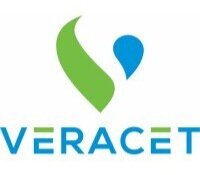
Current used Veracet to analyze river samples collected in 2020.
Veracet is a California-based startup that uses DNA testing methods and advanced data analytics to provide information on the sources of fecal coliform in surface waters.

Communication, Visualization, and Analysis

IOSight is providing their data platform, iGreen, for collecting and visualizing real-time data from the Proteus probes and data from other sources, such as MWRD monitoring programs and USGS gage data. The platform has data visualization tools and allows the creation of dashboards to be displayed on the H2NOW website. IOSight is also contributing data validation methods that use both statistical and artificial intelligence approaches, and water quality assessment expertise.
IOSight, based in Israel, provides proven industry-specific solutions for water and energy utilities and delivers a variety of benefits including: water quality monitoring, cost reduction, productivity improvement and regulatory compliance.

Mekorot scientists work with IOSight to support data analysis and water quality assessment.
Mekorot is the national water company of Israel and the country's top agency for water management. Founded in 1937, it supplies Israel with 90% of its drinking water and operates a cross-country water supply network known as the National Water Carrier. Mekorot and its subsidiaries have partnered with numerous countries around the world in areas including desalination and water management.
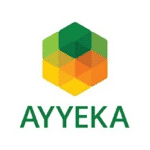
AYYEKA’s versatile data logger and transmitter, Wavelet, is installed with the Proteus probe on the Main Stem of the Chicago River. It is energy-efficient and capable of transmitting data over a variety of communication networks.
AYYEKA is an Israel-based company that rethinks large infrastructure management and operation. Their end-to-end technologies address data generation challenges in complex systems and infrastructures of all kinds, and especially where monitoring and control of remote and dispersed assets is critical to reliable and efficient operations.

Comcast’s daughter company MachineQ provided data communication services via their proprietary low-power wide area network LoRaWAN for one of the sites in the beginning of the project.
Comcast is a member of the Lo Ra Alliance, a non-profit association of more than 500 member companies, committed to enabling large scale deployment of Low Power Wide Area Networks (LPWAN) loT through the development and promotion of the LoRaWAN open standard. They have launched Lo Ra networks in multiple markets, including Chicago, where it will serve as the telemetry service to enable real-time data transmission.
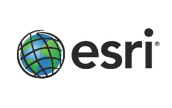
In the beginning of the project, ESRI provided Current with free access to their ArcGIS platform in order to map data source locations and import real-time data from all three Proteus probes.
ESRI is an international supplier of geographic information system software, web GIS and geodatabase management applications.

Green Diamond is a Chicago-headquartered sustainability strategy and technology firm that has served many Fortune 500 corporations, federal, state, and local government agencies, and institutions. Its Sustainability Intelligence platform reflects decades of expertise, R&D, and collaboration with clients on sustainability-related data management, analytics, and subject matter, including for water management. Green Diamond served as a trusted adviser and integrated solution partner to Current in the early concept and design stage of H2NOW. It helped architect the solution and guide the selection of technologies and partners, and used its Sustainability Intelligence data analytics platform to deliver the first-ever prototype proving the feasibility of the H2NOW concept. Green Diamond helped develop the first H2NOW website has contributed ongoing thought leadership and support to the development of the platform.
 M. Harris & Co. and MG Strategy and Design develop the water quality gauges and data visualizations for the H2NOW Chicago website and provide PR and communications support for the project.
M. Harris & Co. and MG Strategy and Design develop the water quality gauges and data visualizations for the H2NOW Chicago website and provide PR and communications support for the project.
M. Harris & Co. is a marketing and creative firm that makes their clients memorable. From its inception in 2016, Melissa Harris has grown M. Harris & Co. to a 60-plus-client roster. The firm has taken off because of her relentless pursuit of veteran talent — Pulitzer, Grammy, Clio and James Beard Award winners — hand-picked to meet a client’s needs.
MG Strategy and Design helps organizations grow and thrive by creating exceptional experiences. They work with nonprofits, associations, foundations, companies and media to turn ideas into actions and inspire change. Their team combines creativity, design and development skills with deep subject matter expertise to produce transformative work.

Utilities
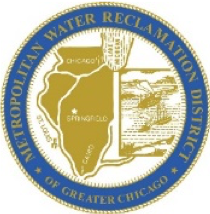
The Metropolitan Water Reclamation District of Greater Chicago (MWRD) has been the most critical project partner right from the start. Current consulted the MWRD scientists on equipment installation, sampling procedures and permits, project goals, and data communication and interpretation. MWRD’s Monitoring and Research Department allowed Current to install Proteus probes at their existing monitoring locations and provided installation support and continues to assist with the probes’ repair and maintenance. It is also providing Current with the data from their monitoring programs, as well as data on plant effluent and lake diversion. MWRD’s microbiology lab has tested multiple river samples for fecal coliform using the EPA-approved method, so that Current could calibrate the Tecta B4 device, and it continues to conduct occasional check-testing on an as-needed basis. MWRD’s IT department initially assisted Current with establishing data flow from Proteus probes to ArcGIS platform. The MWRD continues to support the project on multiple levels, including review of data analysis results and strategic guidance and advice.
The MWRD is an award-winning, special-purpose district responsible for treating wastewater and providing stormwater management for residents and businesses in its service area, which encompasses 882.1 square miles and includes Chicago and 128 suburban communities throughout Cook County. It serves 10.35 million people each day, including 5.25 million residents.
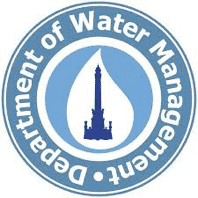
Chicago Department of Water Management (DWM) helped acquire the novel microbial testing technology, Tecta B4 device, that Current uses to test the river samples for fecal coliforms. DWM is also providing guidance and advice on data analysis and interpretation, and data communication to the public.
The CDWM delivers nearly 1 billion gallons of drinking water to residents of Chicago and 125 suburbs daily. It also removes wastewater and storm runoff through the sewer system. Its mission is to efficiently provide the highest quality drinking water to the Chicago region while protecting our most precious natural resource - Lake Michigan.

Research
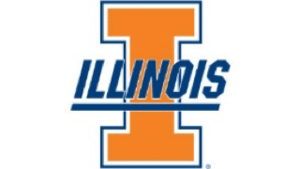
University of Illinois Extension in the College of Agriculture, Consumer, and Environmental Sciences (ACES) at the University of Illinois at Urbana-Champaign (UIUC) is providing guidance and expertise in designing a public survey and survey data analysis. The survey is meant to assess the public's perception of the river.
UIUC is a public Land Grant research university in Illinois and the flagship institution of the University of Illinois system. Illinois Extension partners with Illinois citizens, communities and organizations. The H2NOW project is synergistic with Illinois Extension's Community and Economic Development and Agriculture and Natural Resources core program areas.
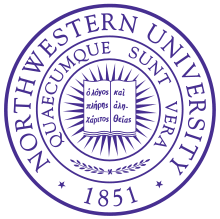
Northwestern University researchers are conducting principal component and correlation analyses using H2NOW data and data from other sources, such as MWRD monitoring programs, USGS gages, and rainfall. These analyses help better understand the various factors affecting water quality at each of the branches.
Northwestern University is a comprehensive research university that is deeply interdisciplinary across multiple schools and units. Their rigorous yet empathetic academic environment provides a robust mixture of theory and practice, with an emphasis on top-tier research, new knowledge, creative expression and practical application. Northwestern is one of only four top 10 US universities also ranked in the top 20 in each of the five graduate education categories.

Community Engagement
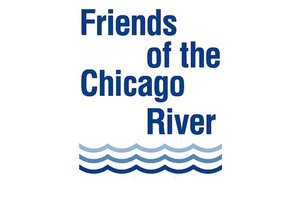
Friends of the Chicago River provides project support through participation in planning meetings, project design, and public engagement strategies.
Since 1979, Friends of the Chicago River has been working to improve the health of the Chicago River system for the benefit of people, plants and animals; and by doing so, has laid the foundation for the river to be a beautiful, continuous, and easily accessible corridor of open space in the Chicago region. The health of the Chicago River and the animals who call it home is of paramount importance to the Chicago area. Check out their sister site, Chicago Water Fun, to learn more about how you can interact with our great Chicago River.

Metropolitan Planning Council (MPC) provides guidance related to policy impact and synergies with other efforts associated with realizing the Our Great Rivers vision. For example, making this water quality data available to the public is an important step to ensuring that the river is swimmable by 2030 (an OGR goal), and more immediately, will accomplish one of the Our Great Rivers vision’s first goals of real-time water quality monitoring and communication.
MPC has made the Chicago region a better place to live and work by partnering with businesses, communities and governments to address the area's toughest planning and development challenges. MPC works to solve today's urgent problems while consistently thinking ahead to prepare the region for the needs of tomorrow.

North River Commission (NRC) leads community engagement on the river's North Branch – their volunteers have surveyed community members at multiple events throughout the summer and fall, and helped promote awareness for the project.
NRC is the nonprofit community and economic development corporation for the northwest side of Chicago, from the Chicago River to Cicero and Addison to Devon. Founded in 1962 by concerned residents and neighborhood institutions, North River Commission unites over 100 civic associations, businesses, schools, institutions and places of worship.

Sierra Club has led volunteer water sample collection outings along the river's South Branch, which is instrumental in calibrating that branch's Proteus probe.
Sierra Club works to protect communities, conserve wild places, and explore nature. The Chicago Sierra Club is 7,500 members strong. Their territory stretches south from the Lake County line to the Indiana border, west to part of La Grange, and north through Niles and Skokie. They are active in environmental issues, electoral campaigns, and social events.

South Loop Chamber of Commerce (SLCC) leads community engagement on the river's South Branch - its volunteers have surveyed community members at multiple events, and helped promote awareness for the project.
The SLCC’s primary objective is to encourage the principles of ethical business and professional practices, while improving and assisting in the development of the business community in the general "South Loop/Bridgeport'' area of Chicago. It offers services such as identifying potential sites for redevelopment, assistance with city services, while providing technical assistance and advertising opportunities.

Urban Rivers led water sample collection outings along the river's North Branch and Main Stem, which is instrumental in calibrating the Proteus probes at those locations. H2NOW may help their team better measure the impact that The Wild Mile – the world’s first mile-long floating ecopark located in the North Branch Canal – is having on the river’s health, since it’s being constructed between H2NOW’s North Branch probe, and the two probes further south.
Urban Rivers is a Chicago-based non-profit, whose mission is to transform city rivers into urban wildlife sanctuaries. They measure their impact through the number of students they reach with their curriculum, the number of visitors they inspire with their Wild Mile park, the amount of new habitat they create, and the number of graduate research projects they support.
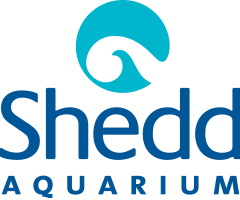
Shedd is donating their laboratory analysis capacity to test river samples for total coliforms.
Every year Shedd Aquarium welcomes 2 million guests for unforgettable encounters with belugas and bluegills, stingrays and sturgeons. But Shedd is more than just a destination. With partners in Chicago and around the globe, it also protects endangered species and their habitats and rescues and rehabilitates wildlife in need.
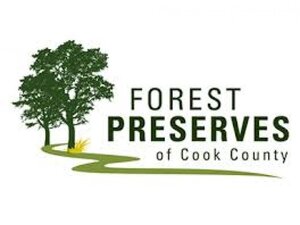
The Forest Preserves of Cook County (FPCC) provides project support through participation in planning meetings, project design, and public engagement strategies.
The FPCC was created in 1914 with a mandate to “protect and preserve” the forested lands in Cook County. With nearly 70,000 acres, it is one of the oldest and largest forest preserve districts in the United States. It receives an estimated 62 million visits each year, providing an escape into a world teeming with wildlife and rich with outdoor recreation and environmental education opportunities.

Funding

The Chicago Community Trust has provided significant project support for H2NOW Chicago through the Our Great Rivers program.
The Chicago Community Trust is the community foundation serving Chicago, suburban Cook County, and the Illinois counties of DuPage, Kane, Lake, McHenry, and Will. It unites generous donors, committed nonprofits and caring residents to effect lasting change that moves our entire region forward. Established in 1915, it is the third largest community foundation in the country as of 2019.

Comcast provided funding to purchase the third Proteus probe, which allowed Current to install one probe on each branch of the Chicago River.
Comcast is a member of the Lo Ra Alliance, a non-profit association of more than 500 member companies, committed to enabling large scale deployment of Low Power Wide Area Networks (LPWAN) loT through the development and promotion of the LoRaWAN open standard. They have launched Lo Ra networks in multiple markets, including Chicago, where it will serve as the telemetry service to enable real-time data transmission.

